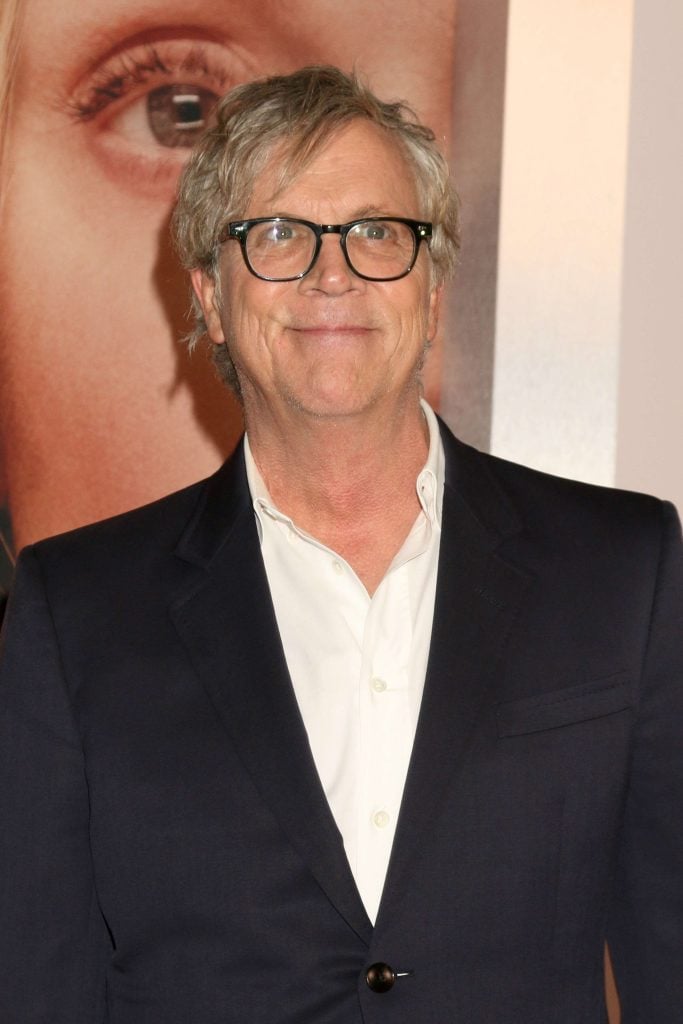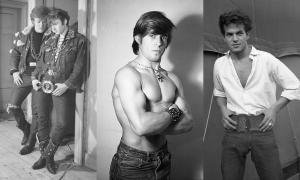Unraveling the Drama: Joaquin Phoenix’s Abrupt Exit from Todd Haynes’ NC-17 Gay Romance and Its Ripple Effect on LGBTQ+ Cinema
The film industry buzzed excitedly when news broke about an upcoming NC-17 gay romance film directed by Todd Haynes. This project, based on an idea by Joaquin Phoenix, was set to be a groundbreaking addition to LGBTQ+ cinema. The film promised to explore love, identity, and societal norms in 1930s Los Angeles. With Phoenix and Danny Ramirez in the lead roles, the film was expected to be a significant cultural milestone.
The Vision Behind the Film
The untitled film reportedly aimed to explore the depths of human connection and societal pressures. Set in the 1930s, a time when LGBTQ+ relationships were not accepted, it showed the struggles and triumphs of two men who fell in love and decided to flee to Mexico. This story reflects the past and the ongoing fight for acceptance and equality today.
Joaquin Phoenix’s Involvement
Joaquin Phoenix, known for his transformative roles, was a significant draw for the film. His involvement added a layer of prestige and anticipation. Phoenix’s commitment to portraying complex characters made him an ideal choice for a film that required depth and nuance. His pairing with Danny Ramirez promised dynamic on-screen chemistry.
Related | Lady Gaga Dazzles as Harley Quinn in ‘Joker: Folie à Deux’ Trailer
The Sudden Departure
The Five-Day Countdown
Just as the excitement peaked, the production faced an unexpected turn of events. Five days before shooting was scheduled to begin, Joaquin Phoenix made the shocking decision to exit the film. This abrupt departure left the production team in disarray, scrambling to find a solution.
Reasons Behind Phoenix’s Exit
Explicit Content and NC-17 Rating
One main reason for Phoenix’s departure was the film’s explicit content and NC-17 rating. The actor reportedly had reservations about the graphic nature of the scenes. While Phoenix is no stranger to challenging roles, the explicit content of this film may have pushed the boundaries of his comfort zone. The NC-17 rating, which is rare and often controversial, added another layer of complexity to his decision.
Personal and Professional Considerations
In addition to concerns about the content, Phoenix may have had personal and professional considerations. Balancing career choices and personal values can be challenging for any actor. Phoenix’s decision to leave the project could have been influenced by many factors, including his future career, personal beliefs, and the potential impact on his public image.
The Fallout
Immediate Reactions from the Production Team
Christine Vachon’s Nightmare
Christine Vachon, Todd Haynes’ producing partner, described the situation as a “nightmare.” The sudden exit of a lead actor so close to the start of production is a significant setback for any film. Vachon and the rest of the production team were left to navigate the fallout and find a way to keep the project on track.
Scrambling for Solutions
Potential Replacements
The production team immediately began searching for a replacement. Several actors were considered, but finding someone to step in on such short notice was daunting. The urgency of the situation required quick thinking and decisive action.
Pedro Pascal: A Possible Savior?
Pedro Pascal emerged as a potential candidate to replace Phoenix. Known for his versatility and strong screen presence, Pascal seemed like an ideal choice. However, his busy schedule posed significant challenges, making it uncertain whether he could join the project. The production team had to weigh the pros and cons of each potential replacement, considering both availability and suitability for the role.
Challenges in Finding a New Lead
The search for a new lead actor was complicated by the film’s unique demands and the need for someone who could deliver a compelling performance under tight deadlines. The production team had to consider not only the acting skills of potential replacements but also their ability to handle the explicit content and the NC-17 rating.
Community Backlash
Reactions from Queer Film Fans
Disappointment and Frustration
Queer film fans expressed disappointment and frustration over Phoenix’s decision to leave the project. Many had high hopes for the film and felt let down by the sudden change. The anticipation that had built up around the film turned into a sense of betrayal for some fans, who had looked forward to seeing a high-profile actor like Phoenix in a groundbreaking LGBTQ+ role.
Social Media Outcry
Social media platforms were flooded with reactions from fans and critics alike. The incident sparked debates about representation, commitment, and the challenges faced by LGBTQ+ cinema. Hashtags related to the film and Phoenix’s departure trended on Twitter, with users expressing a range of emotions from anger to understanding. The social media outcry highlighted the passionate investment of the LGBTQ+ community in seeing their stories represented authentically on screen.
The Future of the Film
Uncertainty and Speculation
Possible Delays and Rescheduling
The film’s future remains uncertain. The production team may face delays and rescheduling as they work to find a new lead and adjust their plans. A lead actor’s sudden departure can have a ripple effect on the entire production schedule, affecting everything from location bookings to crew availability.
The Director’s Perspective

Todd Haynes’ Vision and Challenges
Todd Haynes, known for his dedication to authentic storytelling, faces significant challenges in bringing his vision to life. The director’s perspective on the incident and his plans moving forward will be crucial to the film’s success. Haynes’ commitment to the project and his ability to navigate the challenges posed by Phoenix’s departure will determine the film’s future.
Broader Implications
Impact on Joaquin Phoenix’s Career
Reputation and Future Projects
Phoenix’s decision to exit the film could have implications for his career. While he is known for his bold choices, this incident may affect his reputation and future project opportunities. The actor’s decision to leave a high-profile project so close to the start of production could be seen as unprofessional by some, potentially impacting his relationships with directors and producers.
Representation in LGBTQ+ Cinema
The Importance of Authentic Storytelling
The incident highlights the importance of authentic storytelling in LGBTQ+ cinema. Representation matters, and the challenges faced by this film underscore the need for commitment and support from all involved. The LGBTQ+ community relies on filmmakers to tell their stories with honesty and integrity, and the success of such projects depends on the dedication of everyone involved.
More Stories:
- Bella Ramsey Becomes First Non-Binary Actor Honored with Madame Tussauds London Wax Figure
- JoJo Siwa No Longer Identifies as A Lesbian After Celebrity Big Brother House Made Her Realize She’s Queer
- ‘RuPaul’s Drag Race All Stars’ Season 10 Reveals Record-Breaking Cast and Brand-New Tournament Format
- Walton Goggins Sets the Internet Ablaze With Cheeky New Photoshoot
- Storms, Scandals & Slow-Burns: ‘Pulse’ Stars Say the New Medical Drama Is “Like Nothing We’ve Seen on TV”
FAQs
What was the film about?
The untitled film was set in 1930s Los Angeles and told the story of two men who fall in love and flee to Mexico. It aimed to explore themes of love, identity, and societal norms.
Why did Joaquin Phoenix leave the film?
Phoenix reportedly left the film due to concerns about its explicit content and NC-17 rating. Personal and professional considerations may have also influenced his decision.
Who was considered to replace Joaquin Phoenix?
Pedro Pascal was considered as a potential replacement for Phoenix. However, his busy schedule posed significant challenges.
How did the LGBTQ+ community react to Phoenix’s departure?
The LGBTQ+ community expressed disappointment and frustration over Phoenix’s decision to leave the project. Social media platforms were flooded with reactions, sparking debates about representation and commitment.
What challenges did the production team face after Phoenix’s departure?
The production team faced the challenge of finding a new lead actor on short notice. They also had to navigate potential delays and rescheduling.
What are the broader implications of this incident for LGBTQ+ cinema?
The incident highlights the importance of authentic storytelling and representation in LGBTQ+ cinema. It underscores the need for commitment and support from all involved in bringing these stories to the screen.







